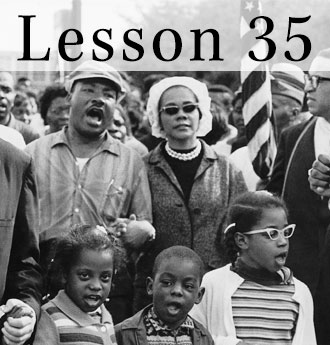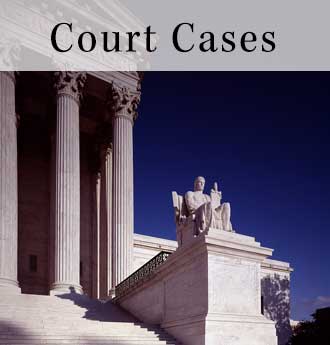Lesson 35: How Have Civil Rights Movements Resulted in Fundamental Political and Social Change in the United States?
Johnson, Lyndon B. (1908-1973) Thirty-sixth president of the United States. Served in both the House and the Senate. Elected in 1955 as Senate Majority Leader. Elected vice president in 1960. Succeeded to presidency in 1963 upon the assassination of President Kennedy. Elected president in 1964.His "Great Society" program included massive grants to cities and metropolitan areas and programs to assist the poor and minorities. More grant programs came into existence during the five years of Johnson's administration than any other time in American history.
Kennedy, John F. (1917-1963) Thirty-fifth president of the United States. Elected to the House of Representatives in 1946; six years later, was elected to the Senate. In 1960, Kennedy became the youngest man and first Catholic ever elected president. Assassinated in 1963.
King, Martin Luther, Jr. (1929-1968) Religious leader and social reformer. Major leader of the civil rights movement in the 1960s, he was an advocate of nonviolence. Formed the Southern Christian Leadership Conference in 1957 and became its president. Won the Nobel Peace Prize in 1964. Assassinated in 1968.
Thoreau, Henry David (1817-1862) Naturalist, philosopher, author. Lived for two years at Walden Pond to demonstrate the simple, self-reliant life. In 1849, he published his essay "On the Duty of Civil Disobedience." Was imprisoned for one day in 1846 for refusing to pay a tax supporting the Mexican War which he opposed.








